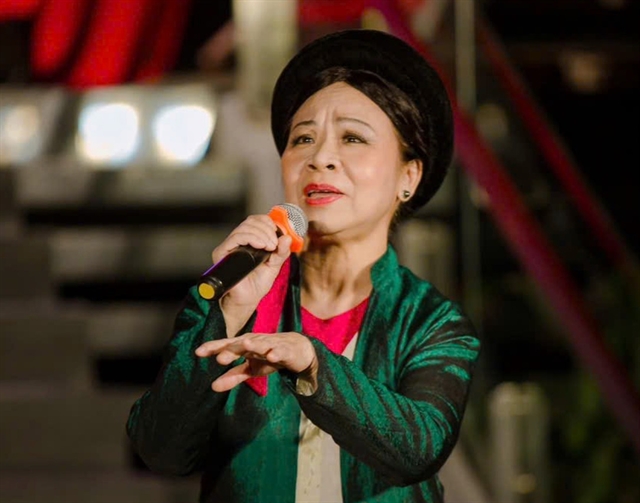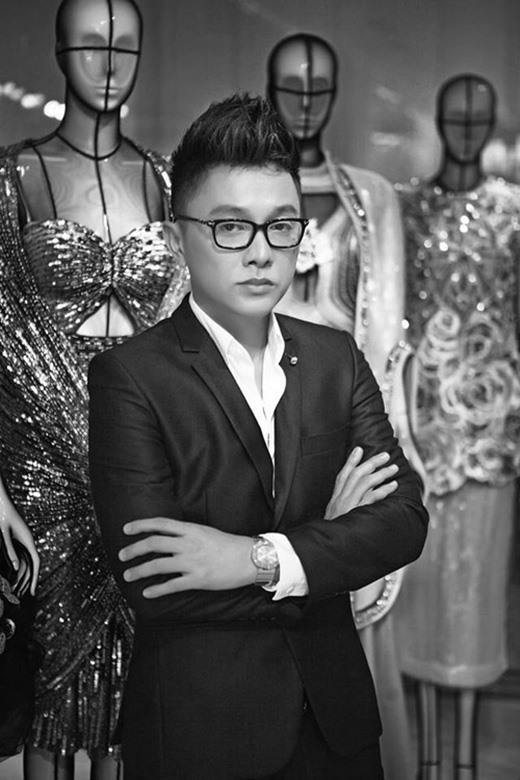 Inner Sanctum
Inner Sanctum

A graphic design graduate of the HCM City University of Architecture, Nguyễn Công Trí now devotes all his energies to his "big love" – fashion. He is the only Vietnamese member of the Asian Couture Federation.
 |
A graphic design graduate of the HCM City University of Architecture, Nguyễn Công Trí now devotes all his energies to his "big love" – fashion. In a little more than 10 years, Trí has gone from being a fashion outsider to a top couture designer in Việt Nam with A-list celebrities as his clients. He is the only Vietnamese member of the Asian Couture Federation. The talented designer tells Thúy Hằng that Minh Hạnh was an early inspiration.
Inner Sanctum: How did you land up in the fashion industry?
Actually, I nurtured the dream of becoming a fashion designer from a very young age. Before paying serious attention to fashion in the early 1990s, I’d sharpened my drawing skills for nine years. At that time, designer Minh Hạnh was the only designer, who, with unique creations using ethnic brocade, had created a new "face" for Vietnamese fashion industry. Watching everything she did, I told myself, "I want to be a designer like her – professional, passionate and full of creativity." I decided to enroll in the Hà Nội University of Industrial Art and the HCM City University of Architecture. Then, the university in Hà Nội was the only one with a fashion design faculty. However, I failed the enrollment examination there.
Without any better option, I resigned myself to becoming a graphic design student in HCM City. I comforted myself that I would find an opportunity to return to fashion. At that time, I was not aware that graphic design would be very useful for my later career. In fact, it supported me to get better ideas, concepts and unify the layout.
Based on my knowledge of graphics, I can use or mix colours very well. High accuracy is another distinction that the graphic has taught me. I can realise the difference between two shirt flaps even if the difference is just 1mm unequal.
In 2000, I decided to send my Green Leaves collection to compete at the Vietnam Collection Grand Prix. The collection won the New Idea prize. The following year, my Sublimation of Land and Water collection received the second prize at the Singapore Fashion Connection for Asian designers.
After the two competitions, I continued to pursue both graphic work and fashion. I started getting clients working in the showbiz industry, as a stylist and fashion designer. I also helped build up their public image. “Queen of Entertainment,” singer Hồ Ngọc Hà, supermodel Thanh Hằng and actress Tăng Thanh Hà were among my clients.
Inner Sanctum: What was it that helped you succeed even while you were seen as an outsider?
Those who have a great passion for something that they could not get formal training in will learn more than the others. I was madly learning everything I could about designing and fashion.
Passion, industry and love of learning are necessary when you want to reach your goal.
Inner Sanctum: Whenever you unveil your new collection, you always surprise audience. Where do you get your inspiration from? Are there days when you lack creative ideas?
For any form of art, including fashion, the vivid life surrounding us is the endless inspiration. You can’t get any ideas if you lock yourself within your room. You have to go out and merge into life’s flow, then you can, day by day, absorb its “scents”, which turn into fresh ideas for your work.
I get inspiration from very simple things, which are usually ignored by others. For example, my collection No 9 – Lúa; Alongside its real meaning as ‘rice’, this word also refers to those who come from countryside and have a naive and rustic personality.
I see the beauty of countryside women, especially in their bà ba (Southern women blouse). Inspired by this, I have developed collection, using lãnh Mỹ A – a kind of traditional Southern hand-woven silk, chiffon, organza, linen and velvet. The collection was presented at the Tokyo Fashion Week in March.
Earlier, collection No 6 – Nấm (Mushroom) was inspired by a story about the world’s extinction, with nothing surviving but the mushroom.
For the latest collection – Cô Gái Của Kẻ Lạ và Tôi (The Stranger’s Girl and Me), which was introduced at the recent Hà Nội International Fashion Week, the idea came from comments of my foreign friends about the lovely chaos of local life in Việt Nam’s big cities. I then compared all that chaos with an attractive girl, who has different characters, both good and bad, and what she will look like when every aspect of her personality is exposed.
Inner Sanctum: Which of your collections have you liked the most?
Honestly, from the collection No 1 through No 8, whenever I presented it to public, I have been dissatisfied with some detail or other. I used to turn all my ideas into real creations. However, when I look back, I know that if I kept my mind clear, I could have developed a single idea into three or four different collections. If the feast is too sumptuous, diners will not be satisfied. That’s the biggest lesson I’ve learnt so far.
When I started my career as a graphic designer, I set a 10-year plan, under which I would create a collection every year. So far, I have created nine. After collection No 10, instead of numbering them, I will just design collections for spring/summer and fall/winter seasons. I will also plan an exhibition after unveiling collection No 10. This exhibition will be the “thesis” of my first 10-year journey.
Inner Sanctum: How many hours of work do you put in everyday?
It’s very normal for me to work from 9am until 12pm. Whenever I have to prepare for a big show, I can work for 20 hours.
I have three fashion labels – KIN Concept, Nguyen Cong Tri and Cong Tri, of which I am designer and manager. I also need to supervise my craftsmen during the tailoring process because I always demand high accuracy. — VNS